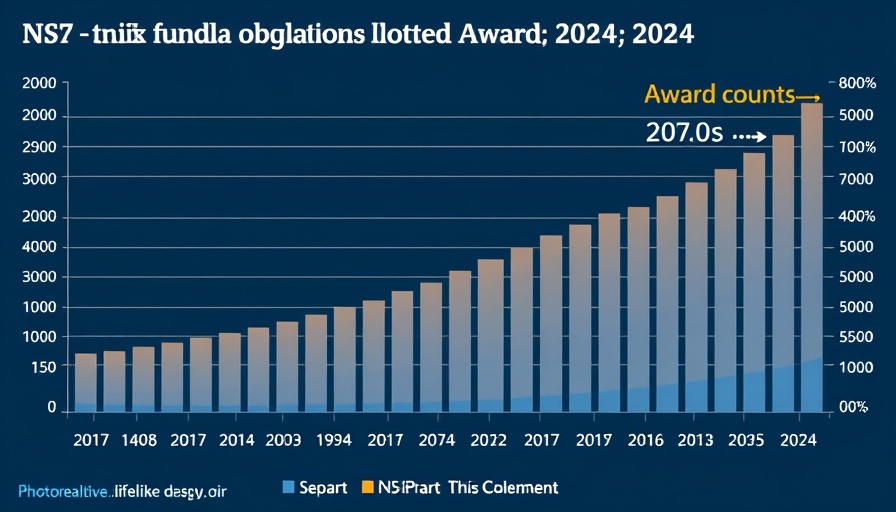
NSF at a Crossroads: A 75-Year Legacy of Innovation
This week marks a somber moment for the National Science Foundation (NSF) as it celebrates its 75th anniversary while grappling with a potential 60% budget cut. Launched on May 10, 1950, by President Harry Truman, the NSF was envisioned by Vannevar Bush as a means to foster basic research in the United States, a vision that has shaped the country's scientific landscape for decades. However, despite its significant contributions to technology and research, current political paralysis threatens its future.
What the Cuts Mean for Scientific Research
The proposed budget for fiscal year 2026 is bleak, with discretionary resources slashed to $3.903 billion. This alarming reduction will curtail funding for essential research programs, and if enacted, could lead to a staggering decline in the workforce supported by NSF projects—from 330,000 participants to just 90,000. Basic research has been the foundation for innovations like the internet, touch-screen technology, and more, helping to drive economic growth and enhance national security. These cuts not only undermine the NSF's mission but also risk the viability of future scientific advancements.
The Ripple Effect of Funding Cuts
Investment in NSF-funded research has historically provided a substantial return on investment for the U.S. economy, yielding between $1.50 to $3 for every taxpayer dollar spent since 1950. As the foundation’s funding gets slashed, the consequences extend far beyond the laboratory setting. Local economies dependent on NSF grants for research and employment will inevitably suffer. For instance, a proposed budget cut by the NIH highlighted that losing about $5.5 billion could cost $6.1 billion in GDP and jeopardize over 46,000 jobs across several disciplines.
Historical Legacy: From Truman to Today
To appreciate the gravity of the current situation, one must understand the historical context of the NSF’s creation. Vannevar Bush, instrumental in developing wartime innovations like radar and penicillin, advocated for a science policy predicated on autonomy from political influence. He emphasized that basic research is the engine of technological progress, believing that America could not rely on foreign science for its technological advancement. This foundational belief has driven the NSF for over seven decades, leading to groundbreaking discoveries and the nurturing of innovative minds.
Future Predictions: A Call to Action?
The impending budget cuts signal a dangerous trajectory not just for the NSF, but for American science as a whole. As congressional debate intensifies, it raises questions about America’s commitment to funding innovation. Industry leaders must advocate for renewals in funding and support that transcends partisan politics. Without proactive measures, the nation risks falling behind in crucial scientific fields, jeopardizing advancements in climate change research, public health, and national defense.
The Value of Supporting Basic Research
The NSF has funded 268 Nobel laureates and provided pivotal support for studies that have transformed health, technology, and safety across the nation. With mounting evidence that every dollar counts, leaders in technology and business sectors are urged to unite in defense of scientific funding. As many students and researchers currently rely on NSF grants to fuel their educational and innovation aspirations, cutting funds threatens the workforce of tomorrow and crucial advancements in various fields.
Your Role in Safeguarding Scientific Progress
As stakeholders in the tech-centric economy, CEOs and marketing managers should recognize their role in advocating for NSF funding. Engaging in outreach to legislators, articulating the economic benefits of scientific grants, and participating in discussions on research funding can make a difference. By prioritizing science in budget discussions, business professionals contribute not only to their industries but also to the broader goal of maintaining America’s position as a leader in scientific innovation.
It is imperative for stakeholders in the tech and marketing fields to engage actively in the conversation about research funding and the future of the NSF. By standing behind the NSF, we can ensure that America continues to lead in innovation and public safety. Reach out to your representatives to advocate for sustaining crucial funding for the NSF. Your voice matters.
 Add Row
Add Row  Add
Add 




Write A Comment